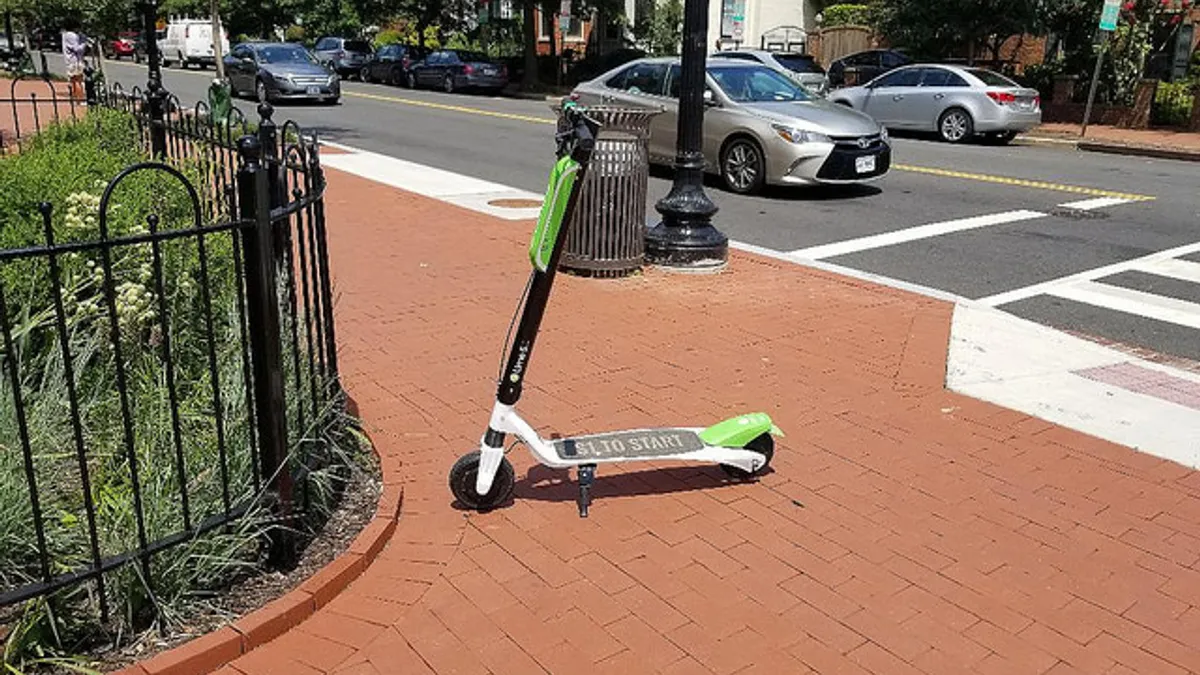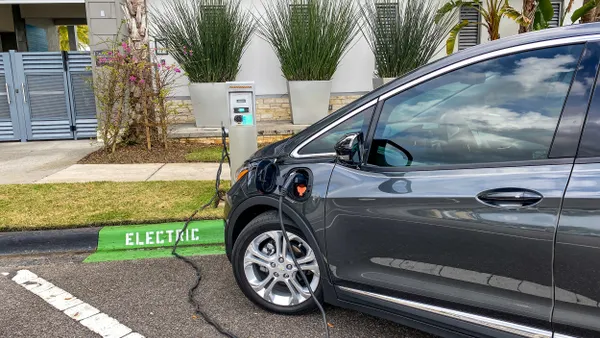Dive Brief:
- Attorneys for the family of a Fort Lauderdale, FL woman announced they're suing Lime for negligence following a scooter accident that left the woman in a vegetative state. Ashanti Jordan, 28, was not wearing a helmet when she collided with a vehicle while riding a Lime scooter in December, and she sustained multiple injuries, including severe brain trauma.
- Attorney Todd R. Falzone said Jordan was operating in the manner she was directed by Lime and "unfortunately, Lime had told her to break the law, and she listened." Lime's app includes language telling scooter users to avoid the sidewalk and instead operate in the street, which is illegal in Florida, Falzone said. He said the suit is intended to advise people of the danger that accompanies the scooters because "Lime is operating their business in clear violation of the law."
- "The safety of our riders and the community is our highest priority, and we're committed to making our streets safer by working with local governments to support safe infrastructure for scooters and bikes," a Lime spokesperson told Smart Cities Dive in an email. "Our thoughts remain with Ms. Jordan and her family."
Dive Insight:
This situation provides a grim reminder of how businesses nationwide can run into challenges due to differing state or municipal laws. Most of the cities that have passed scooter regulations for permanent or pilot programs require riders to stay off the sidewalk and instead use the street or bike lanes. Therefore, mobility companies that encourage riders to operate in the street would be in line with what most — but not all — municipalities have mandated.
Generally speaking, scooter-sharing companies also encourage users to follow local laws. And while many cities post their scooter regulations online, which often outline exactly where to ride devices, reviewing those laws isn't always a priority for the vast majority of users who hop on a scooter.
Municipalities and scooter companies alike also highly encourage riders to wear helmets, although few bona fide helmet laws exist for adults. A recent study out of UCLA indicates that only 4.4% of the people who were injured in Los Angeles-area scooter-related incidents from September 2017 through September 2018 were wearing helmets.
That study is among the growing amount of research into e-scooters' widespread effect on public health. The Centers for Disease Control and Prevention (CDC) recently partnered with Austin, TX to conduct its first epidemiological study on dockless scooters' health risks. Last week a Consumer Reports investigation noted that hospitals nationwide treated at least 1,545 patients for scooter-related injuries in the last year, which could be a low estimate considering many medical facilities do not document or track such injury causes.
While scooter companies are fielding criticism for providing devices that lead to these injuries, they're also coming under fire for not doing more to encourage safe operating behavior. University of Southern California researchers recently concluded Bird doesn't do enough to promote the use of helmets and other safety gear.
Lawyers in the Fort Lauderdale lawsuit are highlighting the confusion that riders can experience regarding local laws. This case could set precedents for how scooter-related injuries are handled and might encourage municipalities to draw up clearer or stricter scooter operating regulations.












